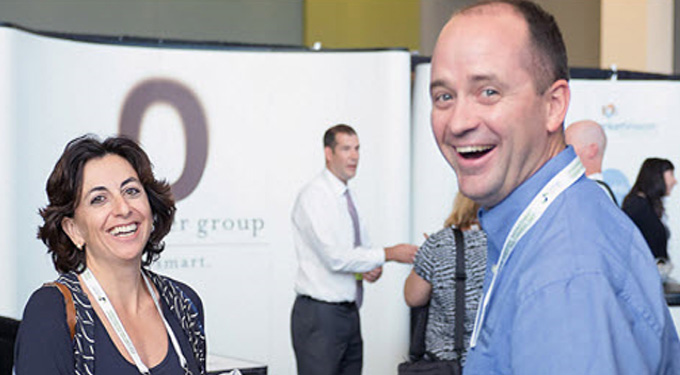It’s about a 4 min. read.
You’re not going to flunk the MRA’s Corporate Researchers Conference, I won’t let you. Here are six sure-fire ways to fail (and how to avoid them):
Right this moment, send yourself an invite to two 30-minute “meetings.” One meeting just prior to the conference (MRA CRC starts 9/26) to plan your goals, and one about a week after you’re back (first week of October). Before the conference, your first order of business is to print out the agenda. Read the synopses and circle the sessions you want to attend. In some timeslots, you’ll notice you want to attend all three sessions (circle them all) and in others you may find nothing relevant to your industry or your role. You can always re-read the agenda and make adjustments during the actual conference. I’ll talk about meeting number two a bit later.
Yes, of course you’re busy. We all are. But we also all need to invest the time to broaden our understanding of the world, our industry, and our clients—you need to LEAVE YOUR HOTEL ROOM. Hack your workaholic tendencies by booking your calendar as “unavailable,” from 7:30am until 11:00pm every day of the conference so others know that you’re busy.

Map out your interests/needs/desires to focus your conversations. A lot of your fellow attendees have significant experience, so if you care about the role of emotions in brand identity and not about millennial shopper behavior, we’ll tailor our conversation and case examples to respond to your specific question(s). Here are the bare bones of your elevator speech: use your 30-minute pre-conference meeting to write it (or write it on the plane). You should state the super obvious things about yourself and your company’s context, that we suppliers probably don’t know:
Vendors (we prefer “suppliers” or “partners”) are not vampires. We come with our pop-up storefronts offering you candy, raffles, cocktails, t-shirts and cute toys to bring home for the kids. Collect it all, but don’t just make it a “grab and go.” Learn a little from us…our PhD’s are using proven techniques in exciting ways and inventing new approaches that brands need and love. Respond to us when we invite you to connect and see where it leads! You have to play to win.
Whether you’re connected to 50 or 500 people on LinkedIn, you need to keep actively learning alongside your network. For your professional network, you need a mix of hub and spoke, content originators, amplifiers, spotters, visionaries and geographically diverse folks, so as you meet people, don’t just collect business cards that will languish at the bottom of your laptop bag. Connect with people on LinkedIn and you’ll have access to a broader network of connections, ideas, and inspiration.
You’ve already gone through the effort of attending the conference, but there’s research that suggests we don’t retain information unless we re-purpose it, share it three times, merchandise it, etc. In other words, you need to take one more step to cement the knowledge or the people you met into your universe. That’s where that second 30-minute meeting comes in:
Follow these simple steps and I promise you, you’re not going to flunk. For an added incentive, tell me what you do to win at CRC (or another conference) and I’ll send you a fun little gift.
Julie blogs for GreenBook, ResearchAccess, and CMB. She’s an inspired participant, amplifier, socializer, and spotter in the twitter #mrx community, talk research with her @julie1research.